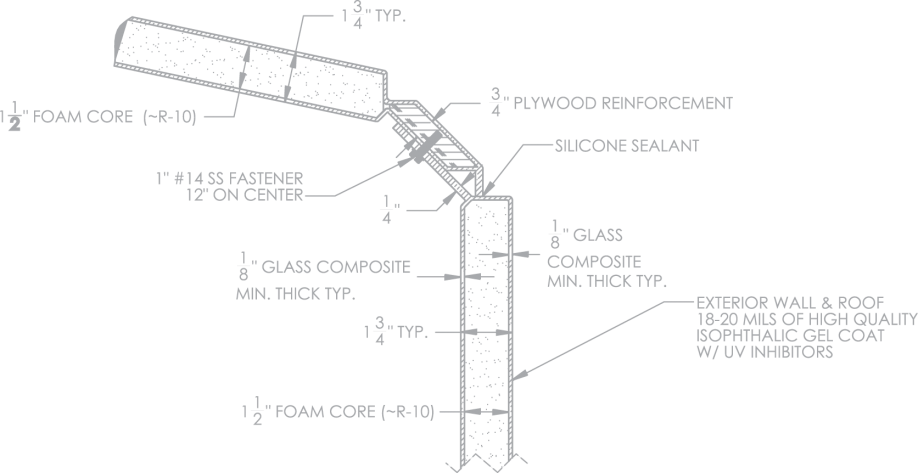Why Composites are Changing Building And Construction Products
Why Composites are Changing Building And Construction Products
Blog Article
Checking Out the Uses and Advantages of Recycled Composites in Modern Industries
The combinations of recycled products with sophisticated composite technologies offers an appealing opportunity for improving sustainability, resilience, and cost-efficiency throughout numerous sectors. As industries look for ingenious remedies to resolve environmental issues and improve operational effectiveness, the incorporation of recycled compounds emerges as a compelling option.
Ecological Benefits of Recycled Compounds
The application of recycled composites in contemporary industries uses considerable ecological benefits, adding to the reduction of waste and the preservation of natural deposits. By including recycled composites right into producing procedures, industries can decrease their dependence on virgin materials, therefore lowering the amount of waste produced and the energy required for extraction and manufacturing. This change in the direction of making use of recycled composites aids in drawing away materials from land fills, reducing the concern on waste monitoring systems, and decreasing greenhouse gas emissions connected with traditional production practices.
Additionally, using recycled composites promotes the conservation of natural sources such as hardwood, minerals, and water, which are typically depleted with the removal and processing of raw materials (composites). By prolonging the life expectancy of products with recycling, sectors can help preserve environments and biodiversity by lowering the demand for brand-new sources. On the whole, the fostering of recycled compounds in modern markets plays a crucial function in advertising sustainability and mitigating the environmental influence of manufacturing processes
Improved Toughness in Item Manufacturing
With a concentrate on durability and robustness, incorporating recycled compounds right into product manufacturing processes enhances longevity and sustainability. By using recycled composites, suppliers can produce items that are not only strong but likewise resistant to damage, making them ideal for long-lasting use in numerous industries. The mix of various materials in recycled compounds can typically lead to enhanced toughness and longevity compared to traditional materials, giving a cost-effective remedy for producing resilient products.
Among the key benefits of utilizing recycled compounds in product production is the capability to customize the material properties to satisfy certain longevity demands. By adjusting the make-up and production techniques, manufacturers can personalize the recycled compounds to stand up to extreme environmental conditions, hefty tons, or regular use without compromising on performance. This versatility in layout and manufacturing enables the production of highly long lasting items that preserve their integrity with time, decreasing the demand for regular substitutes and inevitably contributing to a much more lasting production process.
Cost-Effectiveness and Economic Advantages
Including recycled compounds right into product production not only enhances sturdiness and sustainability but additionally provides significant cost-effectiveness and economic benefits. Using recycled composites can bring about decreased material expenses as recycled materials are usually cheaper than virgin materials. In addition, reusing composite materials can decrease garbage disposal expenditures and decrease the demand for garbage dump space, adding to general cost financial savings for sectors.

Development and Layout Adaptability With Recycled Composites
Using recycled compounds in modern-day markets uses unequaled chances for technology and layout versatility. By including recycled products right into composite manufacturing procedures, firms can push the borders of traditional style restrictions and explore brand-new opportunities. The flexibility of recycled compounds enables the production of complicated shapes here are the findings and structures that may not be attainable with conventional products.
One of the essential benefits of recycled compounds is their ability to be built into different kinds, offering developers the freedom to try out distinct shapes and dimensions. composites. This flexibility opens up a globe of imaginative possibilities, enabling the development of light-weight yet sturdy items that fulfill the particular requirements of different sectors
Additionally, the usage of recycled compounds promotes sustainable methods and sustains the round economic situation by minimizing waste and check out here minimizing the ecological influence of manufacturing procedures. This emphasis on environment-friendly layout options lines up with the growing fad in the direction of sustainability in modern-day sectors, making recycled composites a valuable resource for forward-thinking and ingenious business.
Applications Throughout Numerous Industries
Recycled compounds find impactful and diverse applications across a wide variety of markets because of their one-of-a-kind buildings and sustainability benefits. In the auto industry, these materials are increasingly used for making lightweight and resilient parts, enhancing fuel performance and reducing carbon exhausts. The aerospace market gain from recycled compounds in the manufacturing of airplane components, where the materials' strength-to-weight proportion is essential for ensuring security and efficiency. In building, these composites are used for producing strong yet environment-friendly building materials, adding to sustainable framework development. The renewable resource industry utilizes recycled composites in wind turbine blades and solar panels, utilizing their toughness and resistance to severe environmental problems. In addition, the aquatic industry utilizes these products for producing boat hulls and components, offering boosted longevity and rust resistance. The convenience and sustainability of recycled composites make them important across different markets, driving advancement and environmental stewardship. composites.
Final Thought
Finally, the use of recycled compounds in contemporary markets supplies substantial ecological benefits, boosted durability in item manufacturing, cost-effectiveness, and economic benefits. Furthermore, the use of recycled compounds permits development and style adaptability across various markets. In general, the fostering of recycled compounds offers a practical and lasting solution for fulfilling the demands of the industry while also decreasing ecological influence.

One of the essential benefits of utilizing recycled compounds in item production is the capability to customize the product buildings to fulfill specific resilience demands. Utilizing recycled composites can lead to minimized product prices click this site as recycled products are commonly much less expensive than virgin materials. The aerospace industry benefits from recycled composites in the manufacturing of aircraft components, where the materials' strength-to-weight proportion is essential for ensuring safety and efficiency.
Report this page